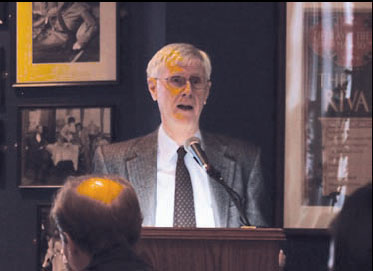Urbanization called major 'tectonic' event by expert
China's urbanization is an "extraordinary and tectonic" event never seen in the world before, and reflects a great experiment that no other country has replicated, said long-time China watcher Orville Schell at a panel discussion.
Schell made his comments on Monday at the Urban China Initiative Urban Leaders Roundtable at the Harvard Faculty Club in Boston.
The roundtable was hosted by the Urban China Initiative (UCI) and McKinsey & Company. UCI is a joint initiative between Columbia Global Centers East Asia, Tsinghua University's School of Public Policy and Management, and McKinsey.
In March, China launched the National New-Type Urbanization Plan (2014-2020), unveiled by the Central Committee of the Communist Party of China and the State Council. Under the plan, China wants its urban population to reach 60 percent by 2020, up from 53.7 percent in 2013. Chinese officials said that the plan will be "human-centered", helping rural citizens living in cities accessing the same social welfare as city residents
"One of the things is the extraordinary expansion of cities, and of course that depends upon a large immigration from the countryside, what I think is commonly known as the largest immigration in human history," said Schell, who is the Arthur Ross director of the US-China Center on China Relations at Asia Society in New York.
Despite being a conservative society for most of its cultural history, China is embarking on a "rather extraordinary social experiment" with its urbanization process, something that runs counter to its focus on the rural people in the mid-20th century, Schell said.
"We began a totally new and absolutely contradictory chapter in China's history. In the earlier years, the whole economy of China was based on the notion that you can extract capital from agriculture," Schell said.
"That was the scheme of China's modernization, that the peasants can work hard, China was an agriculture nation and that the only source of developmental capital would come from the countryside."
How reform can change the attitudes of government officials and city residents toward migrant workers is a problem, according to some urbanization experts.
"On the one hand there are many migrant workers working in the city," building the economy through their participation in the workforce, "but on the other hand, the governments do not want them to stay there," said Gong Sen, deputy director of the Development Research Center of the State Council in China and a member of the panel discussion.
Local governments and city residents say that migrant workers are depleting a city's resources, but that's only true in terms of natural resources, Gong said.
"But if you look at the overall resources - like economic resources and cultural resources - cities like Beijing have a surplus. It's only if you consider natural resources that there is a deficit."
|
Orville Schell, director of the US-China Center on China Relations at Asia Society, giving remarks at the Urban China Initiative Leader Roundtable event held at the Harvard Faculty Club in Boston on April 7. Amy He / China Daily |

























